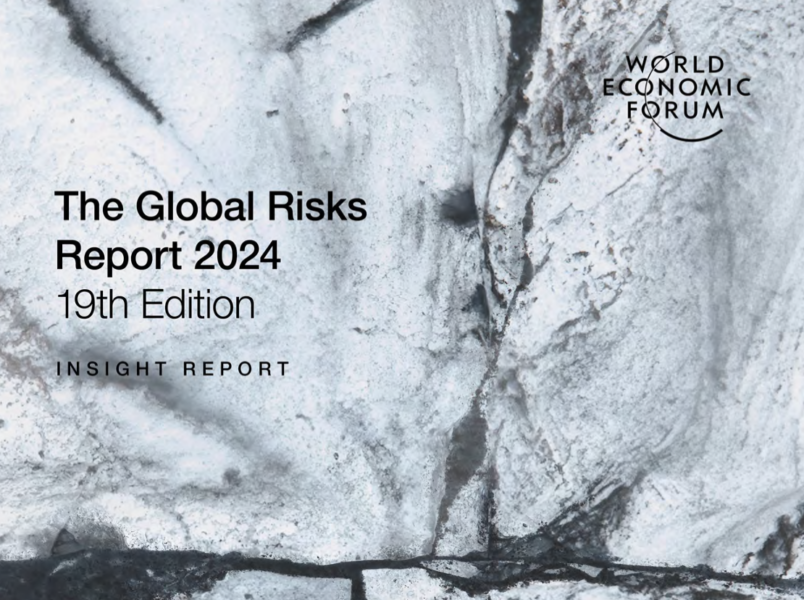
A document that usually serves as the basis for debates at the World Economic Forum in Davos, the Global Risks Report brings for the first time, in its 2024 edition, the topic of false information and disinformation at the top of the short-term concerns of global leaders (see picture).
Climatic events, which continue to worry the majority this year, due to El Niño, are the second biggest short-term fear, followed by social polarization. This explosive combination of threats has a direct impact from new technologies such as Artificial Intelligence. The contradiction is that these applications have both the potential to amplify harm, such as fake news and the polarization of society, and the ability to promote solutions, such as the possibility of mitigating the effects of the climate crisis.
The report with the conclusions of the 19th edition of the Global Risk Perception Survey (GRPS) was carried out jointly by the insurer Zurich and the risk consultancy Marsh McLennan. The concerns expressed by 1,400 leaders from different areas in 113 countries indicate that the challenges to be debated between January 15th and 19th in Switzerland are not small.

The Global Risks Report explores some of the most serious risks to be faced in the next decade, in a context of rapid technological change, economic uncertainty and a planet suffering the consequences of extreme weather events and conflicts
In the long term, which the document considers as ten years, leaders' concerns change, with extreme weather events taking first place. In second place, the topic of sudden changes in the Earth's biomes appears, with misinformation and false information taking fifth place.
The main change in the long-term scenario is the fact that the topic “adverse results of Artificial Intelligence technologies” appears for the first time, already in sixth position among the concerns of global leaders. The estimate is that the facilities provided by Artificial Intelligence for creating fake news and false images tend to worsen the problems already recorded today, influencing electoral results in several important economies in the coming years.
Other topics highlighted by interviewees are those related to cybersecurity and armed conflicts between countries, as well as issues such as lack of economic opportunities, inflation, migration, recession and pollution in the short term. In the long term, issues such as loss of biodiversity and scarcity of natural resources still arise.
Concentration of power
Now, in relation to the past, the research indicates that themes such as the climate crisis, polarization, cybersecurity and involuntary migration have been persistent concerns over the last two years among global leaders. For the same period, the themes that grew most in concern were concentration of technological power, which tends to keep effective mitigation measures in the hands of a few countries, disinformation and false information (from position 115 to the top), armed conflicts between countries and insufficient public services and infrastructure. Concern regarding geoeconomic conflicts, unemployment, biological, chemical and nuclear dangers and debt has decreased.
As alternatives for facing so many simultaneous and interconnected challenges, the report cites localized strategies, innovative efforts, collective actions and coordination between countries. Investments in research and innovation are also cited as a way to facilitate the mitigation of these risks, contributing to a safer and more prosperous world.
Top 10 risks in the next two and 10 years:



